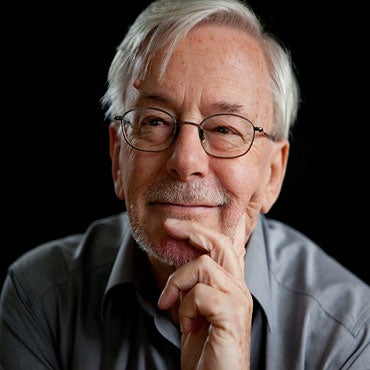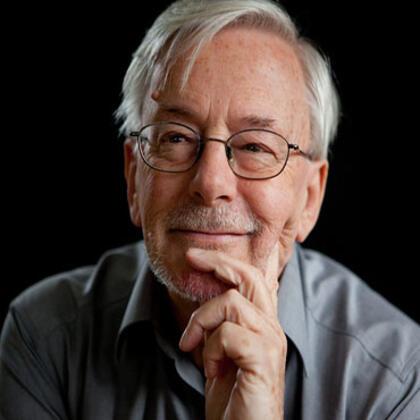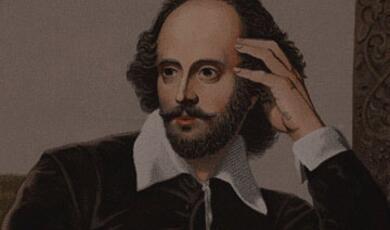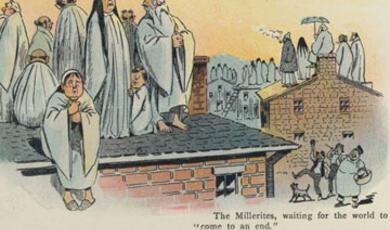Religion and the scientific world view
Share
- Details
- Text
- Audio
- Downloads
- Extra Reading
Is there a 'scientific world view'? At what points might such a thing have implications for religious believing?
Download Text
RELIGION AND THE SCIENTIFIC WORLD VIEW
Professor Keith Ward
Is there a scientific world-view? The Oxford English Dictionary defines a world-view as ‘a set of fundamental beliefs, attitudes, values, etc., determining or constituting a comprehensive outlook on life, the universe, etc.’ The two ‘etceteras’ make clear that there is very little that can be excluded from a world-view. It tries to cover everything, and present a basic view about the nature of reality, the place of humans within it, and the fundamental values that seem to follow from that view. It is, in other words, ‘metaphysics’, in one traditional sense of a general theory of reality.
This may seem a little grandiose for most natural scientists, who spend their time on much more limited issues, and with trying to solve problems in very specific areas of experimental research. Nevertheless, since the sixteenth century the growth of the sciences has revolutionised our view of the universe and of the place of humanity within it. Before that time in the West there was a generally held Christian belief that the created universe had only existed for a few thousand years, that it all existed for the sake of human beings, and that it could not be expected to exist for very much longer. In India there was a very different view that the universe had existed for millennia, and that it was only one of an infinite number of universes, so that humans are a very small part of finite reality. But the universe was thought to be morally ordered by the laws of re-incarnation and of karma, according to which all acts receive their due desert sooner or later. Many of the things that happen are due to the actions of gods or spirits, whose presence is often apparent in the physical universe. The present age is a degradation from an earlier golden age, when the gods walked the earth and when humans were more intelligent and less self-centred.
The discoveries that the sciences have made about the universe put these, and all other pre-scientific cosmologies, in question. There is a huge contrast between Aristotle’s view of the stars as set on a crystalline sphere above the spheres of the sun and moon, and what almost everyone now knows, that our sun is just one star among billions in the galaxy of the Milky Way, which is itself just one among billions of galaxies in this cosmos, which may also be just one among billions of universes, possibly generated from Black Holes.
While the sciences may not have a metaphysical theory about the ultimate nature of reality, the information about the universe they have uncovered is enough to change radically all pre-scientific theories of what the universe is like. To put it bluntly, all pre-scientific views of the physical universe were incorrect in at least some important respects. To the extent that ancient religious and philosophical beliefs incorporate references to the nature of the physical universe, they stand in need of revision. The topic of this talk is to examine how far such revision must extend, and in particular how important such revisions will be for religious traditions originating long before the age of science.
One of the most famous conflicts in the history of science and religion is the conflict between Galileo and the Roman Catholic Church, which came to a head in 1633, when Galileo was condemned by the Holy Inquisition and forced to retract his Copernican views. Nicolaus Copernicus had asserted that the earth circled the sun in ‘On the Revolutions of the Heavenly Spheres’, in 1543, but there had been little public reaction. Indeed, Copernicus was a Catholic priest, and his book carried the endorsement of his local Cardinal. However when Galileo re-affirmed the Copernican hypothesis, the scientific establishment took action.
The story of that conflict has been told often, and it is sufficient here to note that the conflict was not so much between Christian faith and the Copernican view that the earth circles the sun, as between established Aristotelian science and the ‘new science’ of close observation and experiment that was threatening the old scientific elite.
The Catholic Church had associated itself firmly with the authority of Aristotle, who was taken to be master of all sciences (except theology, where he needed to be corrected by Thomas Aquinas, the ‘angelic doctor’). Aristotle’s ideas of substance and accident, form and matter, act and potency, had been used in framing doctrines like that of transubstantiation and ideas of God. His system of the four types of causality, material, formal, efficient and final, was accepted as the proper framework for natural science. Partly because of this, his physics was accepted as definitive, and the Biblical account of the universe was largely interpreted in terms of it.
This was itself a major reinterpretation, since the Hebrew idea of the cosmos was not very like Aristotle’s. Nevertheless, Aristotle, after some initial suspicion (the Archbishop of Paris prohibited the teaching of Aristotle in the thirteenth century) had become identified with the dogmatic definitions of the Catholic Church, and with the scientific establishment, which was sponsored by the Catholic Church.
No one doubts today that Galileo was correct. In 1992 the Catholic Church formally rehabilitated him, thereby admitting that the Inquisition had been in error. Matters of scientific fact are not matters of faith, and if an authoritative interpretation of Scripture includes matters of scientific fact it may be, and it demonstrably has been, in error.
This is a point of enormous importance for religion. Many, probably most, alleged religious revelations include or presuppose statements about matters of scientific fact, about the nature of the cosmos and the place of humanity within it. If all such statements are fallible, it becomes very important to decide exactly which matters are the province of the natural sciences, and which the province of revealed faith. Once it was possible to say that everything in a holy text was guaranteed true, but after Galileo we must first ask what is the subject matter of the text. Only matters of faith, not of science, can be said to be immune from error. But how are we to distinguish the two? Or if we cannot do so, what are we to make of a faith that is prone to error? Can we any longer trust it?
One move that we might make is to deny that the Bible, which was the text in question in the Galileo case, contains any statements of scientific fact, and the mistake the Inquisition made was to think that it did. The Church had long been used to interpreting biblical statements about God metaphorically. God does not literally ride on the clouds, or smell the smoke of sacrifices. So it is not too big a move to take apparently factual statements about the physical universe metaphorically. Saying that it was created in six days had always been taken metaphorically, in the sense that ‘days’ were not normally thought to be periods of twenty four hours, but possibly vast periods of time. It is not too hard to take the whole account metaphorically, and say that the point of the Genesis stories is not to tell how the universe originated, but to put in story form some important spiritual truths about the relation of humans to God and their responsibilities to creation.
The Catholic Church has made this move, and officially and unequivocally accepts a scientific account of the universe and of human origins. But problems remain. If Genesis accounts that people had taken as histories are now seen as stories, can we be sure that many of the Old Testament accounts of the prophets and heroes of Israel, which read as though they were histories, are not stories too? They may be based loosely on fact, but what if archaeological investigation shows that Jericho never had any walls? Or if historical research shows that no Pharaoh ever pursued a gang of Israelite slaves into the Sea of Reeds? Or if the bones of Jesus were discovered and authenticated by convincing documentation in a hill in Galilee, or a grave in Pakistan, as some rather unorthodox Muslims believe?
The general problem, in brief, is of how empirical, scientific or historical, facts relate to religious faith. Few would be happy to interpret all apparent history as story, but where can the line be drawn?
This is the problem the Galilean dispute bequeathed to the Christian Church, and by implication to all religions. It will be a problem around which these talks circle in various ways. I do have a proposed resolution of it, though probably there will be a number of alternatives that some will prefer, and I will try to mention what they are.
Apart from this problem, which may indeed turn out to be a tiny crack that leads to the complete collapse of a huge dam, Galileo’s astronomical theories do not seem to pose a threat to religious belief as such. But they do suggest the need for a fairly drastic revision of the traditional Christian world-view.
The traditional view was that God had created the earth as the centre of the universe, and placed human beings uniquely at the apex of the created order, so that everything in creation ultimately existed ‘for the sake of man’, as Thomas Aquinas put it. Galileo’s thought, if it did not explicitly spell it out, laid the foundation for our realisation that humans are not likely to be the only centre of God’s purposes, since the universe is much vaster than was ever imagined, and the earth is not the centre of it. More recent scientists make much of the fact that humans have only existed for a tiny fraction of the history of the cosmos, which is thought to have originated with the Big Bang about fourteen thousand million years ago. Far from being central to the universe, the conditions of human existence are so very precarious and possibly accidental (dependent on, for instance, the extinction of the dinosaurs 62 million years ago, and on the planet not being hit by a major comet since) that it does not seem that they could be planned at all. Moreover, humans are doomed to become extinct, since the earth will be destroyed by an expanding sun in 5 billion years. Even if we survive that by travelling far into space, the whole universe, in accordance with the laws of thermo-dynamics, will inevitably become uninhabitable eventually Humans are inevitably destined for death, and that seems to reduce all human achievement and purpose to a pointless blip in the story of a pointless universe. In the light of these facts, it can seem implausible to think the whole universe exists just for the sake of such short-lived, accidental and doomed organisms as we are.
Galilean thought, or more correctly this cosmic perspective that is the heir of Galilean thought, can suggest the dethronement of humanity from any important place in the cosmos, and the lack of any objective point or purpose in human existence. It certainly undermines the traditional world-view of Judaism and Christianity. But on closer reflection it seems more reasonable to say that it calls for a revision of that world-view, rather than for its complete renunciation. For one who believes in a creator God can affirm that the cosmos is created so that God can enjoy its beauty. After all, theists believe that the cosmos is really an actualised content of the divine mind, so its creation is like the work of a supreme artist, enjoyable and worth-while for its own sake, without any reference to possible finite persons at all. God, however, could have willed that finite persons should exist, to share the appreciation of beauty, and possibly to help shape part of the cosmos with their own form of creativity, however limited. It does not really matter how many different sorts of persons there are, or for how long they exist. It is their capacity for appreciation and creativity that makes them special, and ‘like God’ in being subjects of experience and action. It is a genuine insight that we are tiny parts of creation, and that the universe was not created just to serve us, maybe even that we were created to serve the universe by enjoying, conserving and shaping it to actualise some of its possibilities. But we still have a distinctive role, in our capacity to understand and act in the universe, as members of the relatively small class of conscious agents who exist in the universe.
But modern science seems to suggest that the existence of human persons is a freakish accident. Or does it? If there is a God, and if God wills human survival, then human survival will not be an accident. The laws will be set up so that we will survive, however improbable it seems. What looks like a lucky accident, in a world without God, will be seen as providential arrangement if there is a God. The only question to ask is; does it look as though a God could have intended to produce us? Well, here we are in a highly improbable cosmos, by a highly improbable chain of lucky breaks. The more improbable the whole thing gets, the more it looks as if the process has been fixed. It looks as if the role of chance is much greater than was traditionally envisaged, and as if the scope of regular laws of nature is much greater too. Providence works within the parameters of chance and necessity, and that may cause us to revise some past ideas of how God acts in nature. But if chance and necessity are themselves not universally operative, but have fairly definite limits (there is just so much chance, and just so much necessity, in the processes of nature), then there can also be a providence that does not transgress those limits, but adds its own goal-directed influence to the cosmic processes of becoming.
As for the fact of the extinction of the planet and the universe, that is no more than saying what we all know, that we will all die anyway, most of us long before that. It does not mean there is no purpose, since the purposes could be in the process itself, not some final state at which it aims. If the God’s aim is the actualisation of values within the process, this does not by any means entail that such values will all come at the end, or will last forever. Of course a theist will think that all actualised values are conserved in the mind of God, and in that sense they will last forever. They will presumably have a perfect realisation in God after the universe itself has ended. In that sense the purpose ‘comes at the end’. But that end could not occur without the process, and the process itself has a value that a pure divine experience cannot have. It may be that God gives finite persons some share in that completed divine experience, in an appropriate way. Most religions think God will do so. But if so, that will be an added bonus, not a necessary condition of the cosmos having a purpose and value for which humans play an important, if not quite a central, part.
So the Galilean expansion of the universe does not deprive humans of their significance, or the universe of purpose and value. Indeed, it may well be held that the universe only has actual value insofar as it is valued and appreciated by some consciousness. A widely held and, I think, correct account of value is that a value is a state that is considered worth-while by some conscious being. If it is not appreciated as worth-while by such a being, nothing is of actual value. A beautiful sunset that is not appreciated by anyone is not actually beautiful, though it has the capacity to appear beautiful to any suitably located consciousness. This is why many philosophers hold that values are ‘subjective’. If this means that their existence as values depends upon their valuation by a consciousness, I think that is true. It does not follow, however, that conscious beings simply project values onto things, or that they can make up any values they like. For some states really are of value – they really are worth-while when appreciated by a consciousness. Examples would be a beautiful landscape, a profound piece of music, or even a luxurious bath. In general, worth-while states are those which give pleasure and intellectual depth. To appreciate such depth requires training, and agents often have to learn what things are of value by discipline and reflective analysis.
It follows from this that there is no value without consciousness. A theist can hold that there are ‘objective’ values, values that really exist even if there are no finite persons to appreciate them, because God is the consciousness that always values the universe, and so enables it to have actual value. The universe, even without any finite persons in it, may have enormous value for God, if it is or contains processes of beauty and elegance, and if God appreciates it. It is salutary to remember that God does not only appreciate humans. God appreciates the vast ranges of the cosmos that have no humans or any other sentient beings, in them. The universe in this sense has objective value.
But there is a different kind of value when the universe is also appreciated from many finite perspectives. One main human purpose may well be to add to the perspectives from which the universe is valued. And that will even add something to the divine valuation of being, as God sees things from our finite perspectives as well as from the purely divine perspective. One of the purposes of human, and general sentient existence, may be to extend the divine perspective itself, to be part of a new form of self-realisation of a cosmic consciousness. Such a divine sharing in finite perspectives on the cosmos may only be a tiny part of the divine consciousness, but it will have its own significance nonetheless. If this vision differs from some traditional Christian understandings, it can be seen as an extension and deepening of those understandings, which adds new significance to the Psalmist’s affirmation that ‘the heavens declare the glory of God’ (Psalm 19, verse 1).
The scientific world-view therefore does not have to take the pessimistic view that humans are insignificant parts of a vast, impersonal, accidental and pointless universe that is doomed to extinction. It is equally compatible with the much more optimistic view that the universe is a beautiful and elegant expression of a supreme cosmic Intelligence; that it has a point and purpose, which is to actualise states and processes of intrinsic value that will be held in the mind of God for ever; and that humans have a small but significant role to play in adding new forms of consciousness to and new possibilities of creative action within the universe. The scientific world-view can be friendly to religious believing, though it does call for revisions to some traditional but now out-dated beliefs. It is not surprising that modern science largely originated in the work of deeply religious men who understood their work as a sharing in the wisdom of the Creator, and who often dedicated their work to the glory of God.
Keith Ward, 20 October 2004
This event was on Wed, 20 Oct 2004
Support Gresham
Gresham College has offered an outstanding education to the public free of charge for over 400 years. Today, Gresham College plays an important role in fostering a love of learning and a greater understanding of ourselves and the world around us. Your donation will help to widen our reach and to broaden our audience, allowing more people to benefit from a high-quality education from some of the brightest minds.


 Login
Login






